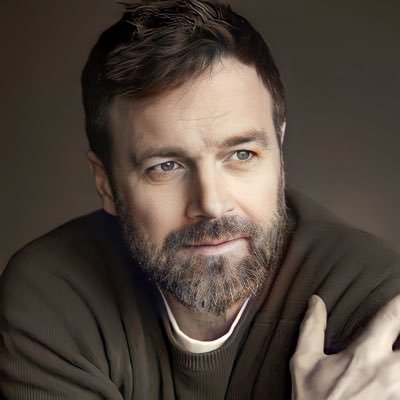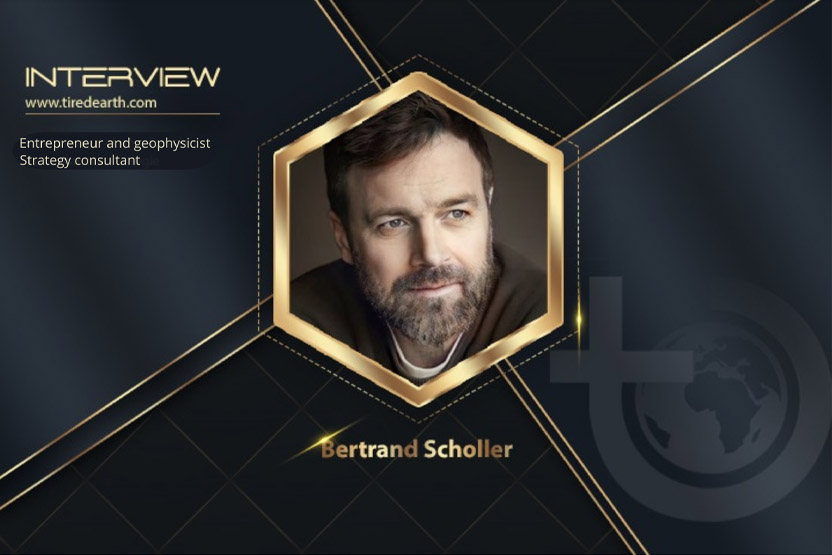If this happened, the environmental damage in Europe would be incalculable.
1. Mr. Scholler, do you think France has consistently supported U.S. policies, even when some of these policies seem flawed?
The question is not whether France blindly follows the United States or opposes it systematically. With Macron, this debate has almost become secondary. What is at play is something else: an excessive ambition, a desire to reshape the global order in his own image, perfectly in line with Klaus Schwab's prophecies. Macron does not govern; he stages his own ascension, convinced he is the chosen one of a new era, one of a globalized power without counterbalance.
In this logic, France is just a springboard, a laboratory where he experiments, ruthlessly, with radical transformations he dreams of imposing on a larger scale. It’s no longer just a choice between globalism and sovereignty, but a true eschatological shift. Macron doesn’t just follow the world’s mutations; he wants to be the architect of it, even if it means trampling on the rules, the balances, and even the very idea of the nation.
Under Biden, he managed to play his game, taking advantage of a hesitant administration to push his agenda under the guise of European influence. But at its core, this theater of intersecting interests masks a more worrying reality: with Macron, we’re not just talking about traditional power dynamics, but about a total project, a paradigm shift where the old structures must disappear in favor of a centralized, unquestionable power, with no anchor other than himself.
2. France has provided significant financial and military aid to Ukraine. How do you assess the impact of this aid on France's national interests and European security? Could this engage France further in the conflict?
I see France's massive aid to Ukraine—financial and military—as a choice that neither serves national interests, nor European stability, nor even any altruistic vision of world peace. In my eyes, it goes beyond simple geopolitical calculation to something more personal, almost messianic, in Macron's mind. It’s as if he’s following an eschatological destiny, he’s written himself, pulling the strings to position himself as a major historical figure.
The impact? Look at the facts: Allies, with France at the forefront, have poured weapons into the conflict, pushing it into an endless war of attrition. We’ve emptied our stocks, bet big, and now we’re at a point where escalation seems inevitable. Macron talks only about one thing: nuclear weapons, again and again, as if it were the logical next step in his script. But putting nuclear weapons on the table is playing with everyone’s security—France’s, Europe’s, and beyond. It guarantees nothing but heightened tension and the risk of uncontrollable escalation.
And then what? If we legitimize this escalation, why stop there? Biological warfare, full-scale cyberattacks, who knows? We’re not strengthening security by flirting with the apocalypse; we’re weakening it. For me, France is going too far, not out of strategy, but out of the ego of a man who wants to make his mark on history, no matter the cost.
3. Given the current economic difficulties France is facing, do you think continuing aid to Ukraine is justifiable in light of internal economic costs?
I’d say no, this aid to Ukraine is not justifiable when we look at France’s current state. The French are suffering—unemployment, insecurity, purchasing power plummeting—and yet their cries don’t reach the higher echelons. Up there, it seems like they have no idea of the pressure cooker society has become. Or worse, they know it and don’t care. The protests? Crushed with violence. Whistleblowers? Harassed, imprisoned—I know a thing or two about that, believe me.
For Macron, the fate of the French comes after his own. He does not govern for them, but for his own legend. Internally, he locks everything down: the media, the institutions, the justice system—each link is under control to ensure his political survival. And internationally? There, he deploys his secret weapon: this strange charisma, this fluid that hypnotizes. He caresses, he charms, he twists the truth with a diabolical skill. Even the skeptics eventually bend. Look at Trump: Macron convinced him to receive Zelensky, which shows the extent of his persuasive power.
So, justify billions for Ukraine while France sinks economically? No. Not when the priorities are so skewed. It’s a selfish choice, one made by a man who prefers to shine abroad rather than fix things at home. The volcano is rumbling, but he dances on top of it.
4. Environmental pollution caused by war has always been a major global issue. What solutions do you propose to protect the environment during conflicts?
I’ll be blunt: talking about environmental pollution during wars is often a smokescreen. It’s used to guilt-trip ordinary people, trapping them in concepts like 15-minute cities, while the real disasters play out elsewhere. Take Nord Stream: a terrorist attack, a massive methane leak—astronomical amounts of CO2 released into the atmosphere—and who really talks about it? No one, or almost no one. And Gaza? There’s an ecological catastrophe on top of a human tragedy. Devastating attacks, a people under bombs, hundreds of thousands of lives shattered, soon millions, and all this under the world’s watch. The land there is poisoned for generations—water, soil, air, everything is affected.
So, solutions to protect the environment in wartime? Let’s be serious: those who lead these conflicts, who start these wars, couldn’t care less about the environment. For them, it’s a commodity, an excuse to tighten the grip on populations while they themselves ravage without scruple. The real solution would be to stop these wars, but that’s not what they want. As long as it brings them power, money, and influence, the planet can die, and so can we. War pollution is their weapon, not their problem.
Can you imagine what we could do with the money spent on wars???
5. While France seems to need more budget to prepare for climate change, Emmanuel Macron speaks of a war economy and the need to increase the military budget. What is your opinion on this issue?
I see this as another sleight of hand from Macron. The climate? It’s always been a commercial venture for him, a nice story he sold to the world to make a name for himself. Now that it’s embedded in people’s minds, he’s moving on: he wants to be a war leader. The war economy, the growing military budget, that’s his new toy. Climate change? Pushed to the back burner, a vague memory he’ll bring out when it suits him.
Now, he imagines himself as the bulwark against dictators, the savior. But the real dictator is him—and it’s becoming increasingly obvious, even for those who still wanted to believe. Look at his recent meetings with military chiefs: it’s obsessive. His only priority is war, power, and maybe the Brigitte dossier, lingering in the back of his mind. The rest—the French, their future, the climate—he doesn’t care about.
For him, it’s all eschatological, as if he’s playing a divine role. He doesn’t think like a normal human being, but as someone who sees himself above everything. Increasing the military budget while talking about the climate crisis is just proof that he values his personal destiny over that of France.
6. In a catastrophic scenario, if the war escalates, would the use of nuclear weapons become inevitable? What would be the environmental damage in Europe if these weapons were used?
I don’t think we’ll get there—not yet. Against Macron, there’s a late but real awakening among figures like Trump, Xi, Ben Salman, and even Musk. They’re starting to realize, after Putin, the danger he represents. Macron is playing with fire, but these heavyweights might try to “turn him off” before it gets too out of hand. If they fail, then yes, the risk exists, and it primarily stems from his all-or-nothing stance.
The real question mark is the French generals. Will they follow orders to escalate to nuclear war? It’s not impossible. For the past seven years, Macron has handpicked his top military officers, shaping a hierarchy in his image—people ready to obey, no matter the orders. That’s chilling, but it’s plausible.
If it happens, the environmental damage in Europe? Incalculable. Today’s bombs are no joke, much more powerful than those dropped on Hiroshima or Nagasaki. We’re talking about ravaged lands, poisoned air, contaminated water for decades, if not centuries. All of Europe would bear the brunt—wildlife, plants, populations, all destroyed or irradiated. But I refuse to think about it too much. It remains an extreme scenario, and I hope these international “wake-up calls” will put a stop to Macron’s madness before we get to that point.
7. After the end of the Russia-Ukraine war, what will be France and Europe’s role as actors in world politics?
I must say I have a hard time imagining this end to the Russia-Ukraine war as a simple checkbox that would calmly redraw France and Europe’s role. For me, we’re in eschatological times—nothing less. The world won’t just “move on”; it’s going to change, and profoundly. Countries, including France, are on the edge of internal collapse: social, economic, and political tensions… Everything the current leaders do—Macron at the forefront—only exacerbates this fracture.
So, imagining France or Europe as stable players in post-conflict world politics? It’s almost naive. The danger is everywhere, both inside and out. France, with its obsession with war and its disdain for internal realities, risks fading away if it continues on this path. Europe? The same, too divided, too fragile. After that, what will the world look like? I don’t know. I just hope it will be better, but given the trajectory, we’ll first have to go through chaos to get there.
8. How do you compare Emmanuel Macron’s decisions with those of other French presidents in similar crises?
I’d say Macron is an anomaly, a UFO compared to other French presidents. The closest perhaps was Mitterrand, but with one major difference: Mitterrand worked in the shadows to lay the groundwork for someone like Macron—calculated heritage, not a coincidence. The others? They each had their vision, their limits, but none pushed things as far as he has.
Chirac, for example, was sincere in his refusal of the Gulf War, close to the Palestinians, anchored in a certain idea of France. Sarkozy? He wanted to restore grandeur to the country, but got lost in his bling-bling dreams and obsession with money. Hollande, he was a ghost—barely visible, except on his scooter to visit his mistress. Before them, there were still presidents who weren’t totally chained to the EU, debt, this globalized vision of a world without borders where defending national interests becomes almost a dirty word.
Macron, though, doesn’t play in that category. He’s tearing France apart like no one before him—a methodical predator. And he doesn’t stop there: he’s becoming increasingly dangerous, not just for the country, but for the world. If he’s not stopped, we might pay a very high price. The other presidents, even with their flaws, had some form of humanity or restraint. He’s something else—a project without a soul, without brakes.

